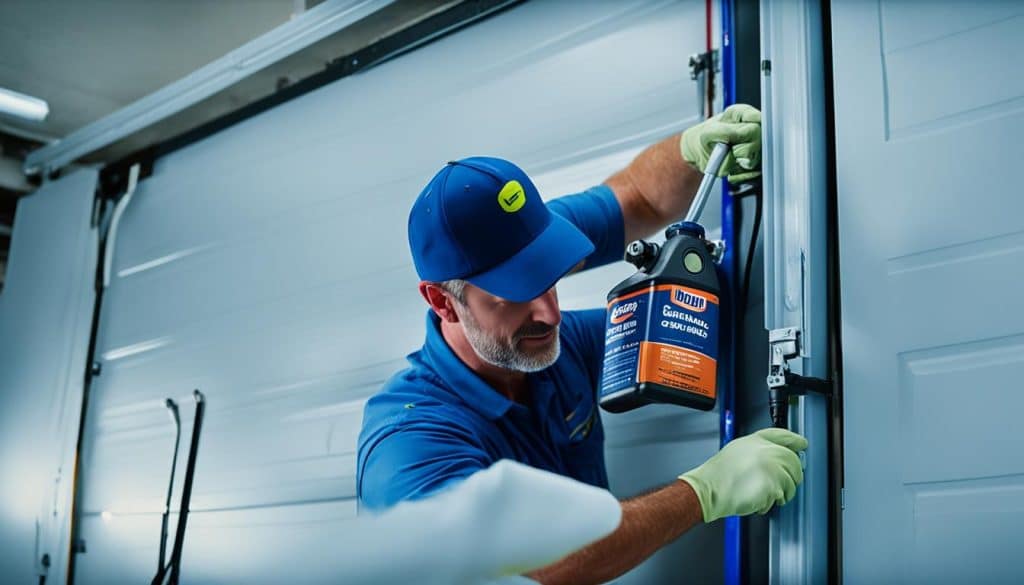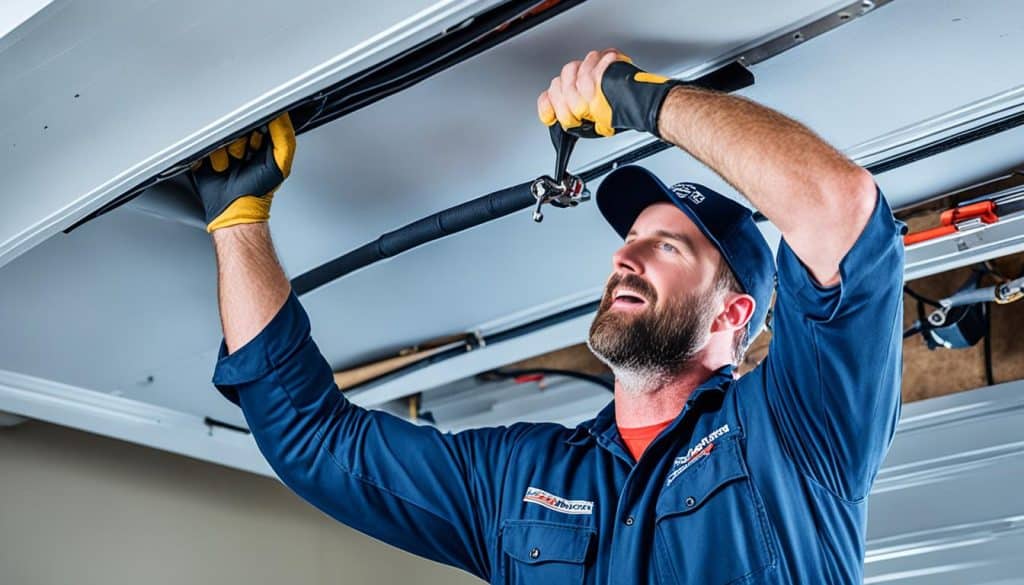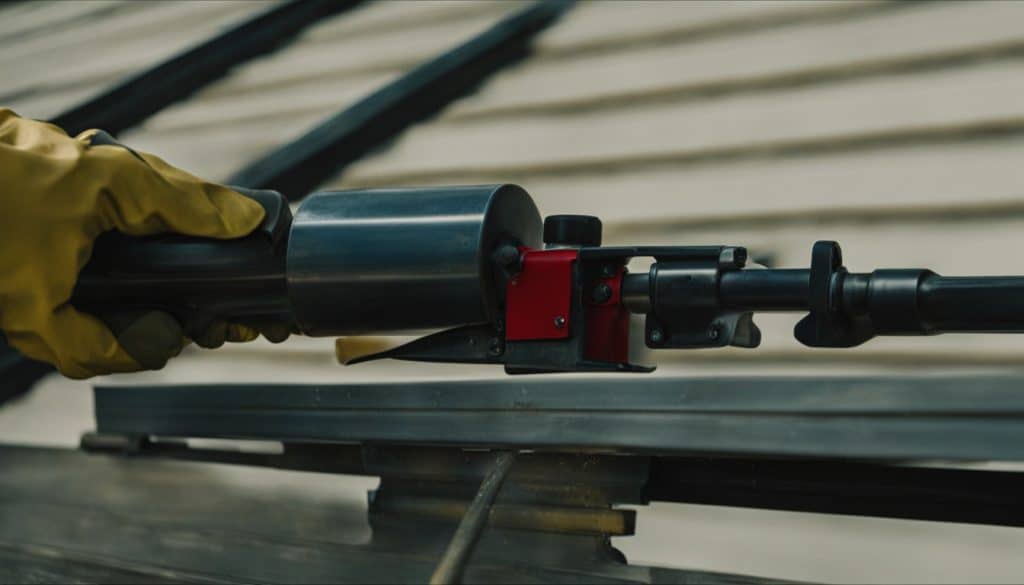Orlando Garage Door Services
1(407) 788-1229
Volusia Garage Door Services
1(386) 236-9100
1(407) 788-1229
1(386) 236-9100
Heard that creaking sound your garage door makes when it opens or closes? If your attempt at DIY repair didn’t work, no worries—Emerald Garage Door Services is just a click away.
Most people overlook how important it is to keep a garage door lubricated. When you oil it regularly, you not only boost its lifespan but also keep the noise level low. Stick with us, and we’ll walk you through the easy DIY method.
In the guide ahead, we’ll show you how to oil your garage door step-by-step. You’ll discover how to clean, grease, and keep it humming along quietly. By the end, your garage door will slide up and down without a peep.

Add oil to the garage door only after running a few easy checks. This extra minute saves headaches and extends your door’s life. These easy steps unlock peak performance.
Begin with a quick visual scan. Nuts, bolts, and hinges should be snug. Tighten anything that wobbles to keep the door steady and safe.
Next, examine the rollers. They should be smooth, with no cracks or wobbles. Replace any that aren’t, and the door will glide without a chime or clatter.
The garage door opener chain carries a lot of weight. A loose chain makes the door strain. Tighten it to return a smooth, whisper-quiet performance.
Making these checks before the oil goes on is a smart move. They set the door up to absorb the oil properly. These quick tasks not only bump performance today but also add years to the door down the road.

Keeping your garage door quiet and smooth is simple if you lube it regularly. Follow these easy steps to get it done and make sure the door works great for years.
Close the garage door and unplug the opener so you stay out of the door’s path.
Grab a damp rag and give the tracks a quick wipe. This removes dust or debris that can slow the door down.
Use a special grease made for garage doors. Spray or wipe it on the hinges, rollers, and springs. This kind of lube sticks around and works super well.
Focus on the insides of the rollers. A good amount of grease here makes the door a lot quieter and much smoother.
If you see any extra grease, wipe it off with a cloth. Too much can attract dust later on.
Remember the lock, armbar, and the top of the rail. A quick spray or dab will help these parts, too.
Gently open and close the garage door a few times. This spreads the grease evenly and checks that everything is working.
Regular lube checks take just a few minutes and keep your garage door working smoothly and quietly.
But that’s not all if you want your garage door to run great year after year. Stick to regular inspections to catch small issues before they grow. Tighten any loose bolts and screws you spot. And when you notice something off, like a squeak or a slow opening, don’t brush it aside—tackle it right away. These quick maintenance steps will help you keep a smooth, quiet door for years to come.
If your garage door still squeaks or sticks even after you’ve given it a good oiling, bent tracks might be at fault. Over time, tracks can lean a little crooked. Grab a rubber mallet or a regular hammer wrapped in cloth, and tap the tracks back into shape. Doing this makes the door glide quietly again.
Sometimes, the problem is nuts, bolts, and screws around the door. They can loosen after the door opens and closes thousands of times. Go over your garage door and tighten every fastener you see. A little extra grip on these small pieces can stop the door from catching and help it move smoothly.
Worn steel rollers can also make the door loud. Swapping out old metal rollers for new nylon or plastic ones can cut the noise by a lot. They glide better and don’t rust. Just make sure you choose rollers designed for your door so they fit right.
If the clatter comes from the opener chain, check its tension. It might be a bit loose, causing extra banging. Use a wrench on the adjuster bolt to bring the chain to the right tension. A tight chain will make the opener run quietly and efficiently, so your garage door operates without a hitch.
Some garage door problems are easy to handle, but not every job is a DIY project. If you’re ever in doubt, calling a pro is the best move. Tackling tricky repairs without the right training can lead to accidents. Experienced garage door technicians can spot the hidden issues and repair them, so you stay safe every time you open that door to your garage.
Remember, a little upkeep helps prevent the rush to fix it in the first place. A quick inspection and a little grease here and there can make your door hum instead of squeak, stretching its life. With a few minutes of routine care, you can keep it rolling smoothly for years without worrying about a breakdown.
Keeping your garage door in great shape isn’t just a nice-to-have—it’s a must-do for every homeowner. A little bit of routine checking makes sure your door glides instead of groans. Just stick to a quick checklist, grab the right lubricant, and peek at the hinges and tracks now and then.
Regular maintenance stops the door from getting stuck, cuts down on groans, and adds years to its working life. That’s a savvy decision for your to-do list.
Picking the right lubricant makes a world of difference. Go for lithium grease or lubricant made especially for garage doors. Steer clear of WD-40 and standard oils; they grab dirt and dry out too fast. Using the right product now makes the next maintenance easier.
Some problems are tricky and are best left to the pros. When the door won’t lift or the sensor is wonky, a trained technician can fix the problem safely and correctly. A quick call now prevents a stuck door later and keeps your garage a secure spot.
The best way to stretch your door’s life? Make maintenance a habit. A monthly peek, a quick spray of lubricant, and a checklist fasten your door’s future. That makes your home look good, feel safe, and keep on running.

Just once a year is enough. If it starts sticking or squeaking, add a touch more grease.
Pick lithium-based grease or a product labeled garage door lubricate. Skip WD-40 and oil—they only pull in dust and grime.
Nope, those rollers take care of themselves. Extra lube can actually hurt them.
Not a chance. Only use lithium-based grease or specialized garage door spray. They’re made for the job.
Look for bent tracks, loose screws, or worn rollers. If you can’t fix it, it’s time for a pro. They’ll diagnose and repair the job safely.
Definitely not. Both will invite dirt in. Stick with lithium grease or garage door lube for a clean, quiet door.